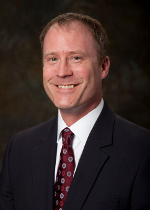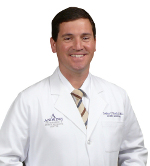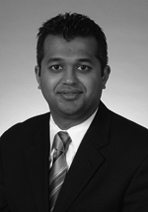Here are eight sports medicine physicians discussing the advantages of taking cases into the ambulatory surgery center setting.
 Matthew Boes, MD, Raleigh Orthopaedic Clinic (Raleigh, NC): There are numerous advantages for sports medicine physicians to bring cases to an ASC. Patients significantly benefit, in that it's much nicer for them to simply go to an ASC as opposed to a hospital, as usually an ASC is smaller, more streamlined and less daunting from both an administrative and cost perspective. Additionally, in an ASC setting, the facility is geared more toward specific procedures and surgeons have more influence in how patients are managed during the entire surgical procedure, which optimizes efficiency, maximizes patient safety and allows for an overall smoother experience for all involved.
Matthew Boes, MD, Raleigh Orthopaedic Clinic (Raleigh, NC): There are numerous advantages for sports medicine physicians to bring cases to an ASC. Patients significantly benefit, in that it's much nicer for them to simply go to an ASC as opposed to a hospital, as usually an ASC is smaller, more streamlined and less daunting from both an administrative and cost perspective. Additionally, in an ASC setting, the facility is geared more toward specific procedures and surgeons have more influence in how patients are managed during the entire surgical procedure, which optimizes efficiency, maximizes patient safety and allows for an overall smoother experience for all involved.
Edwin R. Cadet, MD, Raleigh Orthopaedic Clinic (Rex Healthcare): The incidence of sports medicine injuries have exploded in the last decade. This is secondary to many reasons; a more active aging population, competitive sports participation at earlier ages, and improved health of our society given advances in medicine.
a more active aging population, competitive sports participation at earlier ages, and improved health of our society given advances in medicine.
Although as sports medicine physicians, our primary goal is to return the athlete safely and as soon as possible with non-operative measures, there are many instances where surgery is the best option for optimal recovery. Ambulatory surgical centers, especially those developed in part by surgeons, afford us the opportunity to perform high volume of cases at the highest level of quality, while being conscientious of healthcare costs. ASCs also have the benefit of medical providers being better able to control the “patient experience” and create an environment that is inviting and appealing to, not only patients, but surgeons and staff members.
 Derek T. Dee, MD, DISC Sports & Spine Center: ASCs allow us to provide focused direct care for specific procedures. From a nursing and team standpoint, there is also an inherent familiarity with the initial and extended post-operative course. ASCs mean higher efficiency and a knowledgeable, focused OR staff, as well as greater versatility in terms of techniques, implants and equipment for complex cases.
Derek T. Dee, MD, DISC Sports & Spine Center: ASCs allow us to provide focused direct care for specific procedures. From a nursing and team standpoint, there is also an inherent familiarity with the initial and extended post-operative course. ASCs mean higher efficiency and a knowledgeable, focused OR staff, as well as greater versatility in terms of techniques, implants and equipment for complex cases.
Scott Gillogly, MD, Atlanta Sports Medicine: There are reasons galore. The surgery center is convenient for the patient and far more efficient for scheduling. Patients say the overall experience is better and they receive more personalized and focused preoperative instruction, postoperative instruction and better attention to detail. From the surgeon's standpoint, they are able to schedule more freely, add cases easily and experience efficient turnovers.
Patients say the overall experience is better and they receive more personalized and focused preoperative instruction, postoperative instruction and better attention to detail. From the surgeon's standpoint, they are able to schedule more freely, add cases easily and experience efficient turnovers.
The turnover time at ASCs tends to be 20 minutes whereas at the hospital it could take up to one hour. When you have efficient turnover you can accomplish a lot more and with fees decreasing in medicine, volume is important. The cost is also lower for the same procedures in ASCs, so the copay is lower for patients as well.
Additionally, ASCs have a finite set of circulating nurses and scrub techs, so you get the same one or two people who know sports medicine and your preferences to work with you. At hospitals, you might work with someone who did OB/GYN cases the day before and will do cardiac cases the next day, so they aren't as committed to being efficient interoperatively.
 Manish Gupta, MD, Head of Sports and Orthopedic Center in Boca Raton, Fla.: The biggest advantage for sports physicians is that it allows them to serve their patient population better. As most of our patients are young and healthy, we can add them to our ASC schedules quickly and expeditiously. Also with quicker turnover, patients are triaged quickly which allows maximum efficiency for the surgeon's schedule. And in general patients feel more comfortable in ASC's.
Manish Gupta, MD, Head of Sports and Orthopedic Center in Boca Raton, Fla.: The biggest advantage for sports physicians is that it allows them to serve their patient population better. As most of our patients are young and healthy, we can add them to our ASC schedules quickly and expeditiously. Also with quicker turnover, patients are triaged quickly which allows maximum efficiency for the surgeon's schedule. And in general patients feel more comfortable in ASC's.
You have to look at it from a cost perspective. A surgeon works for a finite amount of time and is reimbursed for the number of cases performed during that time. If I'm in the office from 8:30 am to 5 pm, it's more efficient if I can go from seeing 20 patients to 30 patients per day and keep my costs the same.
At the hospital, we might have a 30 minute delay and hour room turnover time, which means I have time for fewer patients. In the ASC, I have the advantage of controlling my variables. Everyone is motivated to do more cases in the ASC—the facility, anesthesiologists and surgeons—because that's how they generate revenue. The ASC also drives down costs because we can't waste implants. It makes surgeons more efficient and cost-effective.
For sports medicine, the ASC makes sense because my patient population wants to be active and doesn't want to miss work. They can come in on a Tuesday with an injury, undergo an MRI that night and then I can book them at the ASC for the next day because usually they are healthy and don't need additional medical clearances. They expect performance in sports and the same thing from their physicians; they want us to perform at a high level and that mindset is very important in sports medicine.
 Joshua Hackel, MD, Andrews Institute for Orthopaedics & Sports Medicine, Gulf Breeze, Fla.: Advantages include ability for physician to more conveniently control scheduling of cases and staff at more convenient of locations with less time delay for surgery to take place. ASCs can accommodate orthopaedic procedures efficiently, saving time and costs to the patient.
Joshua Hackel, MD, Andrews Institute for Orthopaedics & Sports Medicine, Gulf Breeze, Fla.: Advantages include ability for physician to more conveniently control scheduling of cases and staff at more convenient of locations with less time delay for surgery to take place. ASCs can accommodate orthopaedic procedures efficiently, saving time and costs to the patient.
Selene Parekh, MD, North Carolina Orthopaedic Clinic, Durham, N.C.: There are a number of reasons why ambulatory surgery centers work well. Number one, they are smaller facilities, so patients and families find it easier to navigate. Patients traditionally like surgery centers. Second, it has been shown in research that surgical procedures performed in ambulatory care centers tend to be lower cost than the same procedures in the hospital setting. Third, there are typically efficiencies you see in the ASC but don't necessarily see in the major hospitals.
one, they are smaller facilities, so patients and families find it easier to navigate. Patients traditionally like surgery centers. Second, it has been shown in research that surgical procedures performed in ambulatory care centers tend to be lower cost than the same procedures in the hospital setting. Third, there are typically efficiencies you see in the ASC but don't necessarily see in the major hospitals.
Matthew Shapiro, MD, Slocum Center for Orthopedics & Sports Medicine, Eugene, Ore.: Unlike a hospital, which provides all types of surgeries, our ambulatory surgery center provides very specific and specialized orthopedic procedures. The staff members that we work with prepare for and assist with the same types of surgeries on a regular basis, allowing us to provide patients with much more specialized, timely and effective treatment. Even our anesthesiologists are very specialized, with extensive experience at distributing anesthesia for orthopedic sports medicine surgeries. This contributes to our patients' shorter recovery times and decreased nausea from anesthesia.
surgery center provides very specific and specialized orthopedic procedures. The staff members that we work with prepare for and assist with the same types of surgeries on a regular basis, allowing us to provide patients with much more specialized, timely and effective treatment. Even our anesthesiologists are very specialized, with extensive experience at distributing anesthesia for orthopedic sports medicine surgeries. This contributes to our patients' shorter recovery times and decreased nausea from anesthesia.
Patients don't experience the lengthy wait times they would in a hospital setting at our ambulatory surgery center. In fact, the total amount of time spent in the hospital is generally twice as long as the total amount of time spent in the ambulatory surgery center for an orthopedic sports medicine procedure. Patients can also benefit from the lower costs they pay for a procedure at an ambulatory surgery center — sometimes 30 to 50 percent lower than what they would pay to have the procedure performed in the hospital — and the very low complication and infection rates at the ASC.
More Articles on Ambulatory Surgery Centers:
ACOs: Recognizing Opportunities for Your ASC
Government Shutdown: 10 Impact Factors for Ambulatory Surgery Centers
5 Secrets to Build a Powerhouse Surgery Center Marketing Strategy
 Matthew Boes, MD, Raleigh Orthopaedic Clinic (Raleigh, NC): There are numerous advantages for sports medicine physicians to bring cases to an ASC. Patients significantly benefit, in that it's much nicer for them to simply go to an ASC as opposed to a hospital, as usually an ASC is smaller, more streamlined and less daunting from both an administrative and cost perspective. Additionally, in an ASC setting, the facility is geared more toward specific procedures and surgeons have more influence in how patients are managed during the entire surgical procedure, which optimizes efficiency, maximizes patient safety and allows for an overall smoother experience for all involved.
Matthew Boes, MD, Raleigh Orthopaedic Clinic (Raleigh, NC): There are numerous advantages for sports medicine physicians to bring cases to an ASC. Patients significantly benefit, in that it's much nicer for them to simply go to an ASC as opposed to a hospital, as usually an ASC is smaller, more streamlined and less daunting from both an administrative and cost perspective. Additionally, in an ASC setting, the facility is geared more toward specific procedures and surgeons have more influence in how patients are managed during the entire surgical procedure, which optimizes efficiency, maximizes patient safety and allows for an overall smoother experience for all involved.Edwin R. Cadet, MD, Raleigh Orthopaedic Clinic (Rex Healthcare): The incidence of sports medicine injuries have exploded in the last decade. This is secondary to many reasons;
 a more active aging population, competitive sports participation at earlier ages, and improved health of our society given advances in medicine.
a more active aging population, competitive sports participation at earlier ages, and improved health of our society given advances in medicine. Although as sports medicine physicians, our primary goal is to return the athlete safely and as soon as possible with non-operative measures, there are many instances where surgery is the best option for optimal recovery. Ambulatory surgical centers, especially those developed in part by surgeons, afford us the opportunity to perform high volume of cases at the highest level of quality, while being conscientious of healthcare costs. ASCs also have the benefit of medical providers being better able to control the “patient experience” and create an environment that is inviting and appealing to, not only patients, but surgeons and staff members.
 Derek T. Dee, MD, DISC Sports & Spine Center: ASCs allow us to provide focused direct care for specific procedures. From a nursing and team standpoint, there is also an inherent familiarity with the initial and extended post-operative course. ASCs mean higher efficiency and a knowledgeable, focused OR staff, as well as greater versatility in terms of techniques, implants and equipment for complex cases.
Derek T. Dee, MD, DISC Sports & Spine Center: ASCs allow us to provide focused direct care for specific procedures. From a nursing and team standpoint, there is also an inherent familiarity with the initial and extended post-operative course. ASCs mean higher efficiency and a knowledgeable, focused OR staff, as well as greater versatility in terms of techniques, implants and equipment for complex cases.Scott Gillogly, MD, Atlanta Sports Medicine: There are reasons galore. The surgery center is convenient for the patient and far more efficient for scheduling.
 Patients say the overall experience is better and they receive more personalized and focused preoperative instruction, postoperative instruction and better attention to detail. From the surgeon's standpoint, they are able to schedule more freely, add cases easily and experience efficient turnovers.
Patients say the overall experience is better and they receive more personalized and focused preoperative instruction, postoperative instruction and better attention to detail. From the surgeon's standpoint, they are able to schedule more freely, add cases easily and experience efficient turnovers.The turnover time at ASCs tends to be 20 minutes whereas at the hospital it could take up to one hour. When you have efficient turnover you can accomplish a lot more and with fees decreasing in medicine, volume is important. The cost is also lower for the same procedures in ASCs, so the copay is lower for patients as well.
Additionally, ASCs have a finite set of circulating nurses and scrub techs, so you get the same one or two people who know sports medicine and your preferences to work with you. At hospitals, you might work with someone who did OB/GYN cases the day before and will do cardiac cases the next day, so they aren't as committed to being efficient interoperatively.
 Manish Gupta, MD, Head of Sports and Orthopedic Center in Boca Raton, Fla.: The biggest advantage for sports physicians is that it allows them to serve their patient population better. As most of our patients are young and healthy, we can add them to our ASC schedules quickly and expeditiously. Also with quicker turnover, patients are triaged quickly which allows maximum efficiency for the surgeon's schedule. And in general patients feel more comfortable in ASC's.
Manish Gupta, MD, Head of Sports and Orthopedic Center in Boca Raton, Fla.: The biggest advantage for sports physicians is that it allows them to serve their patient population better. As most of our patients are young and healthy, we can add them to our ASC schedules quickly and expeditiously. Also with quicker turnover, patients are triaged quickly which allows maximum efficiency for the surgeon's schedule. And in general patients feel more comfortable in ASC's.You have to look at it from a cost perspective. A surgeon works for a finite amount of time and is reimbursed for the number of cases performed during that time. If I'm in the office from 8:30 am to 5 pm, it's more efficient if I can go from seeing 20 patients to 30 patients per day and keep my costs the same.
At the hospital, we might have a 30 minute delay and hour room turnover time, which means I have time for fewer patients. In the ASC, I have the advantage of controlling my variables. Everyone is motivated to do more cases in the ASC—the facility, anesthesiologists and surgeons—because that's how they generate revenue. The ASC also drives down costs because we can't waste implants. It makes surgeons more efficient and cost-effective.
For sports medicine, the ASC makes sense because my patient population wants to be active and doesn't want to miss work. They can come in on a Tuesday with an injury, undergo an MRI that night and then I can book them at the ASC for the next day because usually they are healthy and don't need additional medical clearances. They expect performance in sports and the same thing from their physicians; they want us to perform at a high level and that mindset is very important in sports medicine.
 Joshua Hackel, MD, Andrews Institute for Orthopaedics & Sports Medicine, Gulf Breeze, Fla.: Advantages include ability for physician to more conveniently control scheduling of cases and staff at more convenient of locations with less time delay for surgery to take place. ASCs can accommodate orthopaedic procedures efficiently, saving time and costs to the patient.
Joshua Hackel, MD, Andrews Institute for Orthopaedics & Sports Medicine, Gulf Breeze, Fla.: Advantages include ability for physician to more conveniently control scheduling of cases and staff at more convenient of locations with less time delay for surgery to take place. ASCs can accommodate orthopaedic procedures efficiently, saving time and costs to the patient. Selene Parekh, MD, North Carolina Orthopaedic Clinic, Durham, N.C.: There are a number of reasons why ambulatory surgery centers work well. Number
 one, they are smaller facilities, so patients and families find it easier to navigate. Patients traditionally like surgery centers. Second, it has been shown in research that surgical procedures performed in ambulatory care centers tend to be lower cost than the same procedures in the hospital setting. Third, there are typically efficiencies you see in the ASC but don't necessarily see in the major hospitals.
one, they are smaller facilities, so patients and families find it easier to navigate. Patients traditionally like surgery centers. Second, it has been shown in research that surgical procedures performed in ambulatory care centers tend to be lower cost than the same procedures in the hospital setting. Third, there are typically efficiencies you see in the ASC but don't necessarily see in the major hospitals.Matthew Shapiro, MD, Slocum Center for Orthopedics & Sports Medicine, Eugene, Ore.: Unlike a hospital, which provides all types of surgeries, our ambulatory
 surgery center provides very specific and specialized orthopedic procedures. The staff members that we work with prepare for and assist with the same types of surgeries on a regular basis, allowing us to provide patients with much more specialized, timely and effective treatment. Even our anesthesiologists are very specialized, with extensive experience at distributing anesthesia for orthopedic sports medicine surgeries. This contributes to our patients' shorter recovery times and decreased nausea from anesthesia.
surgery center provides very specific and specialized orthopedic procedures. The staff members that we work with prepare for and assist with the same types of surgeries on a regular basis, allowing us to provide patients with much more specialized, timely and effective treatment. Even our anesthesiologists are very specialized, with extensive experience at distributing anesthesia for orthopedic sports medicine surgeries. This contributes to our patients' shorter recovery times and decreased nausea from anesthesia.Patients don't experience the lengthy wait times they would in a hospital setting at our ambulatory surgery center. In fact, the total amount of time spent in the hospital is generally twice as long as the total amount of time spent in the ambulatory surgery center for an orthopedic sports medicine procedure. Patients can also benefit from the lower costs they pay for a procedure at an ambulatory surgery center — sometimes 30 to 50 percent lower than what they would pay to have the procedure performed in the hospital — and the very low complication and infection rates at the ASC.
More Articles on Ambulatory Surgery Centers:
ACOs: Recognizing Opportunities for Your ASC
Government Shutdown: 10 Impact Factors for Ambulatory Surgery Centers
5 Secrets to Build a Powerhouse Surgery Center Marketing Strategy

